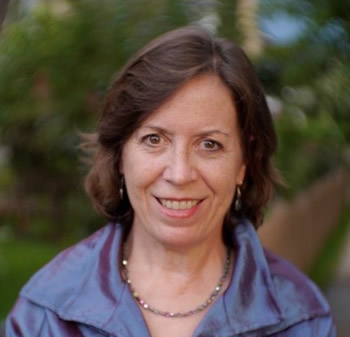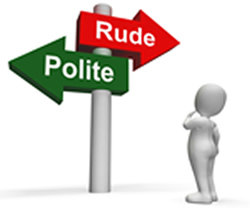Who’s Calling the Shots?
People often find themselves stuck in emotional states where they feel unhappy, anxious or depressed. They know what they feel but they are unaware of their own behavioral patterns that keep them immobilized there. Over and over they focus on their frustrations; they wish things were different. They wait for the bad feeling to go away. The more they focus on their frustrations, however, the more they find themselves stuck. They ask themselves, "What in the world is going wrong? Why won't it change?" They continually repeat the same behaviors with the same results. For me, I ask, "Who’ calling the shots?"
Too often the answer is the neurology and hormonal chemistry of a child or adolescent who did not get recognition, confirmation, or encouragement. This youngster did not have a parent or guardian who knew how to provide a healthy role model of how to handle difficult, compromising situations. These youths saw inappropriate models or none at all. They did not necessarily feel safe or protected. As a result, they developed coping mechanisms that were the best they could manage for their age, knowledge, and resources. Often these coping mechanisms were the same as those of the parent with whom they used to identify —their dominant role model. These patterns are evolved or are created during developmental times when intellectual ability is not fully developed, when knowledge of situations is limited, when freedom of choice is restricted, and when alternatives are not available. These coping mechanisms then generalized to other situations; as time went by, when challenging, threatening, or hurtful events presented themselves, these environmental stimuli triggered the learned psychophysical protective coping mechanisms from deep in the unconscious mind. Those somatic-emotional patterns habitually, and quite automatically, jumped out and took charge. Their familiarity overrode any conscious awareness of either their happening or their origin. One might even have an intellectual sense of this pattern but the pressure is on and when push comes to shove the patterns are reenacted without the ability to control them. Let me share some examples with you.
Trauma Treatment From a Global Perspective
Stephen Porges, Bessel van der Kolk, Ian Macnaughton and Joseph LeDoux discuss the biological nature of trauma (defined as a life threat in the face of helplessness) and the position that if trauma is stored in the body and in the limbic system what are effective treatment approaches?
The Therapist’s Subjectivity: Resonating with Homelessness
Bigger and wiser people than me have examined the benefit of the therapeutic frame and the value that a weekly session has. They understand that a generative relationship can heal and create intra-psychic and interpersonal connections. Nevertheless, I sometimes feel uncomfortable.
A Woman’s Sacred Journey Discovering Your Soul’s Wisdom, Purpose, and Path
Who am I? Why was I born? What am I meant to do? How will I do it? Your soul knows the answers to these questions and you can open to its whispers and wisdom. Come explore your soul’s essence, your heart call, and the next steps along your sacred journey to Self. The research-based science of Positive Psychology, in concert with intuitive awareness and spiritual guidance, offers tools to help you discover your unique destiny.
#MeToo: Survivors of sexual violence as counsellors and psychotherapists
Introduction. This new edited collection will explore the practise of counselling and psychotherapy by self-identified survivors of sexual violence/abuse: #MeToo for psychotherapy and counselling. It will show:
• That sexual violence/abuse is widespread rather than rare - so widespread, in fact, that all contributors to this book about it have experienced sexual violence/abuse;
• That victims/survivors are more than victims/survivors - including that we can be counsellors and psychotherapists;
• That pathologising and objectifying victims/survivors - something which often happens in ‘mental health’ settings – can be challenged….
We’re aiming to make a rich and nuanced contribution to #MeToo, a significant political intervention for psychotherapists and counsellors, qualified and in-training. We are interested in exploring a wide variety of potential contributions to the book…
Structure and content. An initial chapter will offer an introduction to social, cultural and political understandings of sexual violence for counsellors and psychotherapists. After some notes about the ethical underpinnings of our project, the main body of the collection (with space here for approximately 12 main contributions) will be original (previously-unpublished) chapters about working as a therapist and being a survivor (or however you prefer to term yourself) in a variety of counselling and psychotherapy modalities. There will be at least one chapter concerned with supervision; and there will be exploration of activism beyond the therapy room.
Gender Based Changes to Manage Stress:
John Gray PhD has taught gender differences and ways of understanding communication styles for over 40 years now, and he continues to evolve. I learned that he realized healthy human relationships depend on more than strong connections, understanding our differences and good communication skills—they are also influenced by our physical health: “If you aren’t healthy in your mind and body, it’s hard to be healthy outside your mind and body. So if you feel sick, tired, exhausted, stressed and generally unhappy, this will cause your relationships to feel the same way” (www.marsvenus.com).
Considering an online sideline?
It appears that online therapy services are flourishing despite potential concerns with the Health Insurance Portability and Accountability Act (HIPAA), state licensing laws and...











